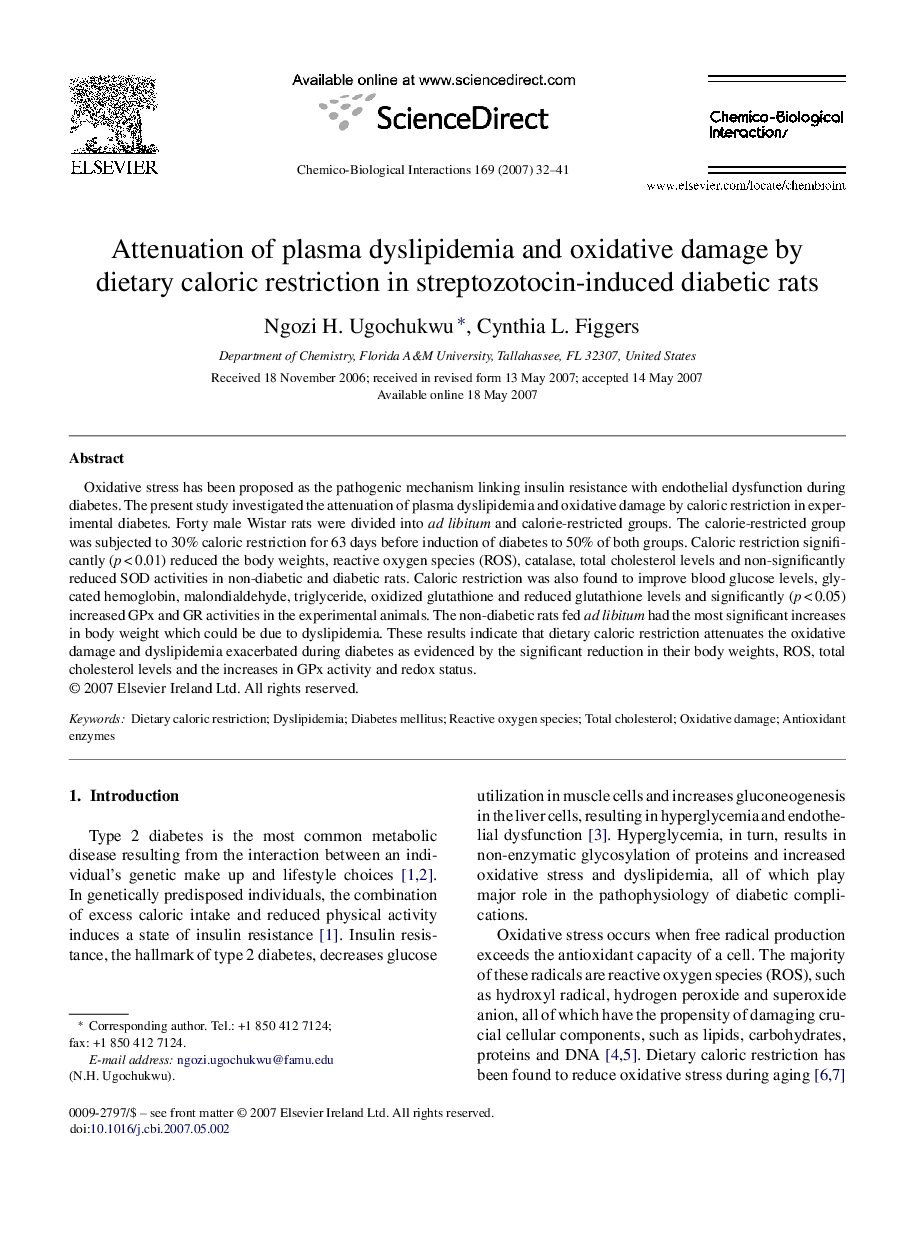| Article ID | Journal | Published Year | Pages | File Type |
|---|---|---|---|---|
| 2581840 | Chemico-Biological Interactions | 2007 | 10 Pages |
Oxidative stress has been proposed as the pathogenic mechanism linking insulin resistance with endothelial dysfunction during diabetes. The present study investigated the attenuation of plasma dyslipidemia and oxidative damage by caloric restriction in experimental diabetes. Forty male Wistar rats were divided into ad libitum and calorie-restricted groups. The calorie-restricted group was subjected to 30% caloric restriction for 63 days before induction of diabetes to 50% of both groups. Caloric restriction significantly (p < 0.01) reduced the body weights, reactive oxygen species (ROS), catalase, total cholesterol levels and non-significantly reduced SOD activities in non-diabetic and diabetic rats. Caloric restriction was also found to improve blood glucose levels, glycated hemoglobin, malondialdehyde, triglyceride, oxidized glutathione and reduced glutathione levels and significantly (p < 0.05) increased GPx and GR activities in the experimental animals. The non-diabetic rats fed ad libitum had the most significant increases in body weight which could be due to dyslipidemia. These results indicate that dietary caloric restriction attenuates the oxidative damage and dyslipidemia exacerbated during diabetes as evidenced by the significant reduction in their body weights, ROS, total cholesterol levels and the increases in GPx activity and redox status.
